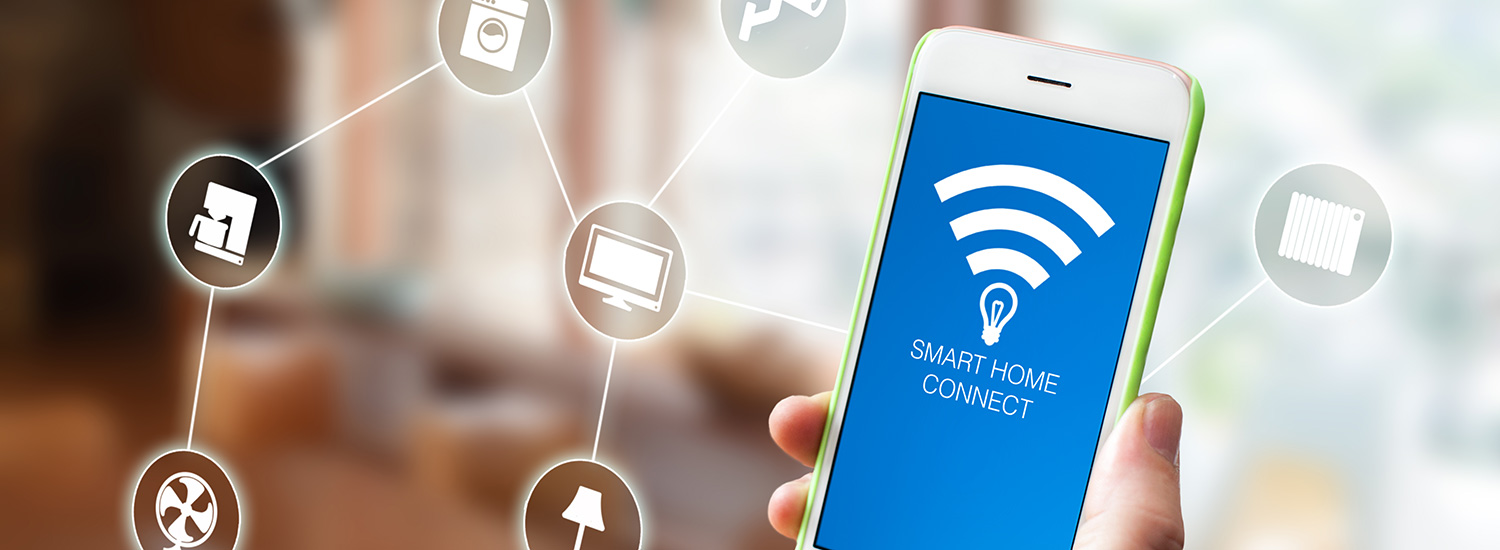You’ve heard of smartphones…have you heard of smart homes? What once seemed like something out of a science fiction movie has become reality. Smart homes use digital technology to connect everything from your appliances and heating and air to your entertainment and security systems, and make them all controllable from your phone or tablet. Many families are gravitating towards this advanced technology and here’s why:
- Convenience. Did you forget to turn the lights off when you left the house? Want to turn your coffee maker on from bed? Or maybe check in on your house when you’re away? With a smart home you can do this and more.
- Safety. If set up properly, smart homes can be far more safe than traditional homes. For example, if your fire alarm goes off, your smart home will call the fire department, unlock your doors, and even light a path for your escape. A smart home immediately takes care of all the details so the only thing you need to worry about is getting your family to safety.
- Accessibility. Smart homes are particularly beneficial for the elderly and can even replace a person’s need for assisted living. A smart home can notify a person to take their medicine, alert the paramedics if a person falls, and help with simple tasks like turning off the oven and lights.
Of course, there are risks associated with smart home technology. If you’re considering making the switch, it’s important to educate yourself on the potential liabilities:
- Vulnerability. Perhaps one of the most concerning issues about smart homes is their ability to be hacked. Much like your computer, your smart home isn’t immune to tampering, and if a hacker is able to infiltrate your system, they would have complete control of the house.
- Technology failure. With so many interconnected parts, a simple technological failure in a smart home could pose a huge problem. Not only could it prove a serious inconvenience, but it could increase your vulnerability.
- Money. Installing a smart home system isn’t cheap. While it may pay for itself in the end, the initial cost can come as a shock.
